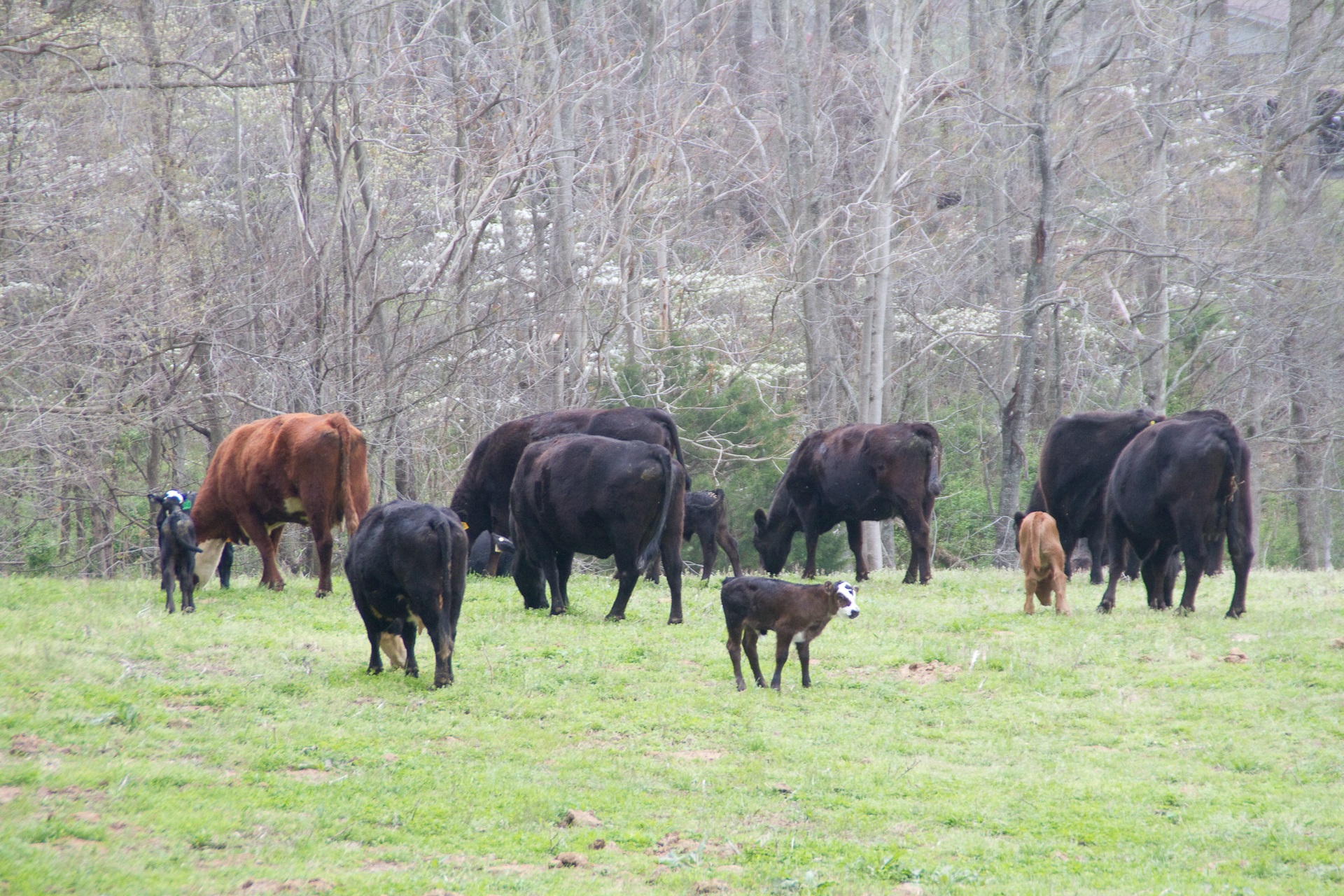SUN Beef

Southern University Natural (SUN) Beef is an “all-natural, hormone-free beef product that arose from a beef cow-calf research project conducted at the Southern University Ag Center's Beef Research Institute.
Louisiana is predominately a cow-calf state, meaning most beef producers have cow-calf operations, selling weaned beef calves after weaning at about 7 months of age. These weaned calves are typically sold and hauled out-of-state to, usually, Texas or Oklahoma, where they are backgrounded. Backgrounding is the term applied to taking recently weaned beef calves, weighing about 500 lbs., and placing them on winter wheat pastures until calves are about 15 months of age weighing 800 lbs. At this point, steers are usually put on a feedlot for 150 days and are harvested at about 1,350 lbs., grading USDA Choice.
The USDA Grade is primarily based on intramuscular fat, as observed between the 12th and 13th ribs at the ribeye of the carcass.
The focus behind the research project here at Southern is based on the question, "What could I do to a calf to make it have a higher USDA Quality grade at harvest?" And since 50% of the calf crop is female, we also want to know how we can raise a heifer so that she becomes a more productive cow, raising calves that are bigger and more productive.
The focus of the initial part of this study is on colostrum. In most other mammals, including humans, the mother transfers passive immunity in the form of immunoglobulins (IgG) to the baby. So most babies are born with an initial immunity against any disease the mother passed on to the offspring. However, in cows, it does not work this way since there is no immunity transferred across the placental membrane. Once the baby calf is born, it must nurse its mother within 24 hours since those factors carrying passive immunity (IgG) can only pass through the intestinal walls for absorption for not more than 24 hours, and then the passage closes.
Proteins, such as those carrying IgG are large, complex molecules. So are bacteria. Allowing IgG to pass through the intestinal wall is necessary, but can be harmful to the baby calf if there are bacteria present, which there always are. When the calf suckles its mom, some amount of bacteria are also present along with milk and IgG. The first milk is referred to as colostrum, and while it carries passive immunity, it also carries additional hormones and growth factors to support calf growth, as well as high in fat content which provides additional energy for the young calf.
Research work in dairy cows was conducted to determine the impacts of colostrum level on lifetime calf productivity. It is generally thought that calves require about 150 grams (g) of IgG for passive immunity to occur. Each quart of high-quality colostrum contains about 50 g of IgG. A study with dairy heifers fed newborn calves either two quarts (100 g IgG) or four quarts (200 g IgG) shortly after birth. Heifers receiving four quarts (200 g IgG) grew faster, and two years later and for the rest of their lives produced 1,400 lbs. more milk per lactation than did heifer calves receiving only 100 g of IgG at birth.
The first phase of the cow-calf study is to feed cows prior to calving either two or five lbs. of additional supplement with expectations that cows fed higher levels of feed supplement will produce more and higher quality colostrum. The earlier studies clearly showed high-quality colostrum impacted claves for their entire lifetime. The first day of life will impact the entire productive life of a cow.
Additionally, other studies with dairy cows (which are used as a model since we milk them twice daily to measure changes) evaluated impacts of daily gain of calves during the first 60 days of life. Those studies showed that for every additional pound of gain from Day 1 to Day 60 compared to contemporaries, heifers would produce an additional 600 lbs. of milk each year. Therefore, the second half of this study was to feed cows either two or five lbs. of supplemental feeds for about the first 75 days of life for calves. After about 75 days (calves are born in herds in about a span of 60-day) the calves, from mothers fed either two or five lbs. of supplement daily and presumably cows fed five lbs. will produce more milk and calves gain faster, with this phase of the trail ending. At this point, calves are divided into two groups of cow-calf pairs, and calves either do or do not receive a creep feed. Creep feeds are provided in enclosures that allow calves access to the feed but not the cow. This has an impact of calves gaining more weight.
Part of the philosophy behind comparing creep feeding is to keep calves that are rapidly growing continuing on with that higher rate of gain, compared to lighter-weight calves. After weaning (appx. seven months of age), all steers and heifers are treated similarly. Steer calves are backgrounded on hay plus supplement over winter, and then to spring and summer pastures. Heifers are treated similarly, except their breeding season is initiated on June 1 for calving at two years of age. Heifers are monitored for treatment impacts of age at breeding, calving date, re-breeding rate, and weaning weight to document long-term impacts on cow production characteristics.
After grazing in pastures all summer long, steers are placed on full-feed in a feedlot for about 150 days, getting them to an average weight of about 1,250 lbs., and then steers are harvested. The carcass weight, USDA Quality Grades and other carcass characteristics are measured.
Some of this beef is harvested through our meat processing plant on the Southern University campus. Those carcasses are processed into steaks, roasts, and ground beef, with most being served through the University's cafeteria and the remaining sold to the public through the campus meat lab.
SUN Beef provides the campus and local community with farm-fresh, locally produced, high-quality beef that is all Natural, with no hormones, and no growth implants. It is some of the highest quality, best-tasting beef anywhere around.
![]()
For more information about the SUN Beef Program, please contact:

